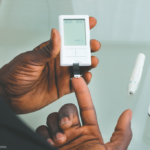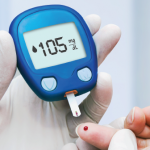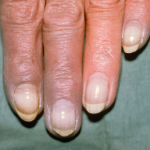Understanding the intersection of diabetes mellitus & rheumatic diseases, including lesser known rheumatic entities of diabetes, such as diabetic cheiroarthropathy, scleredema & diabetic myonecrosis, is crucial for accurate diagnosis.


Michael J. Cammarata, MD |
Understanding the intersection of diabetes mellitus & rheumatic diseases, including lesser known rheumatic entities of diabetes, such as diabetic cheiroarthropathy, scleredema & diabetic myonecrosis, is crucial for accurate diagnosis.
Linda Carroll (with a commentary from rheumatologist Eric Matteson, MD) |
(Reuters Health)—In a case series report, researchers describe rapid symptom improvement in three patients with polymyalgia rheumatica (PMR) when high glucose levels were brought down. After glucose was controlled, patients experienced improvement in both symptoms and laboratory measures of PMR without glucocorticoid administration or an increase in glucocorticoid dosage, according to the report in the…

In your daily contact with rheumatology patients, you likely come across several who have type 1 or 2 diabetes. Are you doing all you can to maximize their treatment? Most physicians know about the damaging health effects of uncontrolled diabetes. From vision loss to kidney failure to nerve damage, those with diabetes require regular vigilance…

SAN DIEGO—Top researchers gathered for a review course at the start of the 2017 ACR/ARHP Annual Meeting in November to describe new research, their own treatment strategies and new ways of thinking about an array of rheumatic diseases. Here are the highlights: Raynaud’s & Other Digit Problems When a patient walks into your clinic with…

“Man may be the captain of his fate, but he is also the victim of his blood sugar.” —Wilfrid Oakley, MB BChir, an early pioneer in diabetes care Perusing the list of the most notable medical achievements in the 20th century, a reader may conclude that the discovery of insulin should rank in a category…

NSAIDs Increase Myocardial Infarction Risk According a recent meta-analysis of real-world non-steroidal anti-inflammatory drug (NSAID) use, NSAIDs may increase the risk of acute myocardial infarction (AMI). The analysis used individual patient data meta-analysis of studies from healthcare databases in Canada, Finland and the U.K. to determine the time course for risk of AMI, as well…

WASHINGTON, D.C.—“Rheumatic manifestations are [often] the initial presentation of a systemic disease, but they can [also] occur during the course of the disorder,” said Joseph Markenson, MD, speaking in the ACR/ARHP Annual Meeting talk, Rheumatic Manifestations of Endocrine Disease, during the ACR Review Course. Dr. Markenson is professor of clinical medicine and a rheumatologist at Weill…
Lisa Rapaport |
(Reuters Health)—People with type 1 diabetes often develop other autoimmune disorders, such as thyroid and gastrointestinal diseases, and a recent study yields new information about this link. In the study, 27% of patients with type 1 diabetes had at least one other autoimmune disorder. But the new study also held some surprises about how early…
Kathryn Doyle |
(Reuters Health)—People with psoriasis may be at increased risk of coronary artery calcium buildup, comparable to that of people with diabetes, according to a new study. Comparing people in their 50s with psoriasis, diabetes or neither disease, researchers found that moderate to severe calcium buildup was about five times as common in people with diabetes…

Martin Garber, DO |
When uric acid becomes elevated in the human body, a variety of problems can develop, most notably gout—a painful, inflammatory arthritis caused by uric acid crystal deposition in joints. Chronically elevated uric acid can also lead to painful kidney stones. The majority of patients found to have hyperuricemia, however, never go on to develop gout…